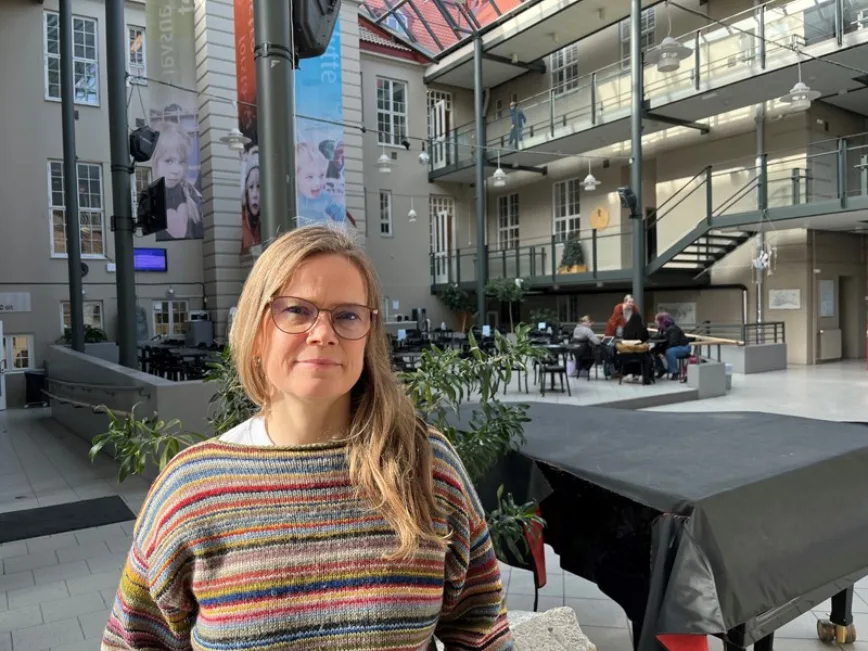
Prøveforelesningen starter kl. 10.15.
Tema for prøveforelesning:
Unveiling Whiteness: Transformative Potentials of Arts Education in Nordic Contexts
with the focus on the following two questions:
1. How does the invisibility of Whiteness impose power on arts education in the Nordic contexts?
2. How can non-linear pluralistic artistic approaches be integrated and accommodated in the current structures of the Community School of Music and Art (SCMA), and how can that enable the dismantling of the exclusionary praxis reproduced by and/or through Whiteness as a discursive practice?
Selve disputasen starter kl. 12.15.
Sted: Auditorium Suhm-Aud Suhmhuset på Kalvskinnet.
Abstract
The Community Schools of Music and Arts (CSMA) is described as first stop in the exclusionary cycle of the Scandinavian cultural sector. However, discussions about the presence of racism in arts education has been confined to institutions that educate professional artists. The lack of discussion of racism in the CSMA and the observation of its position in an exclusionary cycle led to this study.My aim was to investigate the production and hierarchy of knowledge in the CSMA-related education system. I focused on various positions, including my own as a White, racialised artist/researcher/teacher in a position of power.
The collective as a method gave visibility to entanglements between modernist doxa and coloniality. Through and within two cross-sectional professional learning communities, I explored how different entanglements perpetuate the reproduction of colonial concepts and practices in the CSMA. Throughout the work with the thesis, the CSMA emerged as an arena that produces Whiteness. I have attempted to disturb my own and the field’s White normativity and, thus, contribute to moving CSMA education from monocultural to pluralist productions of knowledge. Three central becomings in this thesis are pluralist proximity, safe ethical space and the agential image. Pluralist proximity emerges from a process of unlearning through the daily work of decolonisation from the dominant practices characterising educational institutions. This condition can arise in a continual, binding community of people with various racialised identities in which members attempt to listen to pain, anger, silence, and guilt as knowledge embodied between them. Throughout the research, the materiality of the image became agential in facilitating, exposing and transforming emotional discomfort and in guiding the learning communities towards the not yet known. In these processes, safe ethical space becomes visible, both in academia and in the art field, with normative ethical standards where structural power imbalances are reproduced and with stereotypes stabilized by rejecting minoritised individuals and marginalized stories and knowledge.
The study resulted in one film and four articles where I attempt to rupture the binary and hierarchical categorization between various forms of knowledge set up as conventional scientific and artistic practice. Hence, this study contributes to an ethico-onto epistemological reconfiguration of education research.
Sammendrag
I over 30 år har det blitt initiert entusiastiske og velmenende prosjekter for å få til en kulturskole for alle. Likevel blir kulturskolen fortsatt i dag beskrevet som det første stoppet i en ekskluderende kulturell syklus; Den nordiske kultursektoren.Den manglende diskusjonen om rasisme og kulturskolens posisjon i den ekskluderende syklusen førte til denne studien. Hensikten har vært å undersøke kunnskapsproduksjon og kunnskapshierarkier i kulturskolerelaterte utdanningssystem med fokus på ulike aktørers posisjoner, deriblant min egen, rasifisert som umerket hvit kunstner/ forsker/lærer i det koloniale rasehierarkiets maktordning. Samtidig har jeg utforsket utviklingsmuligheter for kulturskolen i et samtidig pluralistisk samfunn.
I studien har kollektivet vært den viktigste metoden. Gjennom og i to ulike tverrsektorielle profesjonelle læringsfellesskap har jeg utforsket sammenfiltringer mellom kunstfeltet og det pedagogiske feltet; mellom epistemologi, etikk og ontologi, og mellom individuell og kollektiv kunnskapsutvikling.
I arbeidet med avhandlingen har kulturskolen som en arena for produksjon av hvithet vokst fram i det jeg har beveget meg mellom, i og gjennom ulike strukturer som former skoleslaget. Tre sentrale tilblivelser i avhandlingen er; pluralistisk nærvær (pluralist proximity), safe ethical space og det agentiale bilde (the agential image). Pluralistisk nærvær vokser fram i det daglige arbeidet med avkolonisering fra dominerende praksiser som preger utdanningsinstitusjonene. Det er en tilstand som kun kan oppstå i et kontinuerlig og forpliktende fellesskap av mennesker med ulike rasifiserte identiteter der vi forsøker å lytte til smerte, sinne, stillhet og skyldfølelse som kroppslig kunnskap mellom oss. I disse prosessene synliggjøres også safe ethical space, både i akademia og kunstfeltet, med normative etiske standarder som bidrar til at strukturell maktubalanse reproduseres og at stereotypier stabiliseres gjennom å avvise minoritiserte aktører og marginalisert kunnskap. I de kollektive praksisene vokser bildets kraft fram, men også bildets diskursive makt. Gjennom å berøre, gjøre og tenke, gjennom og med bildets materialitet gjør vi det kjente ukjent og omvendt. Sårbarhet og ubehag får rom. I disse rommene utfordres og beveges ikke bare metoder, undervisnings- og forskningspraksiser, men også våre posisjoner i de koloniale rasistisk maktsystemene vi lever i.
Gjennom avhandlingen som består av en film og fire artikler, forstyrres fargeblindhet og hvit normativitet i kunstpedagogiske kulturskolerelaterte utdanningssystem og det skapes muligheter for bevegelser fra monokulturell mot pluralistisk kunnskapsproduksjon.
